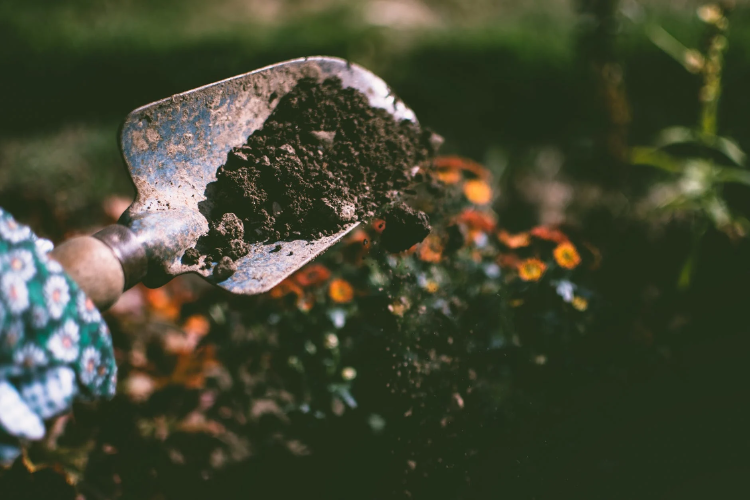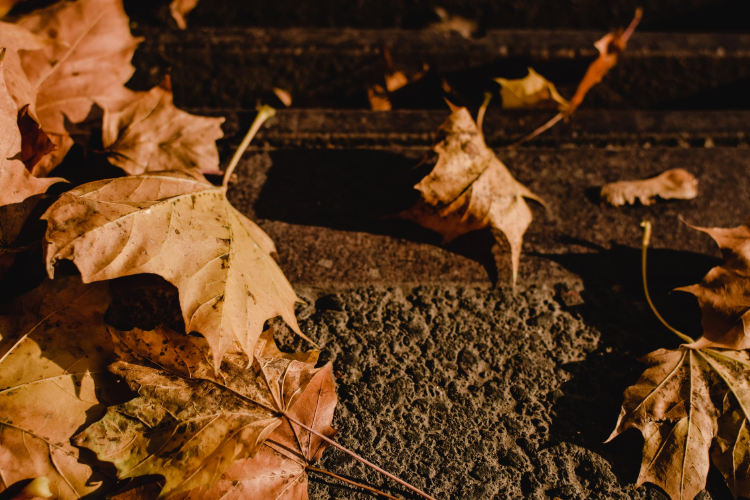Thinking about composting at home? You don't have enough space? You don't know what can be put into your pile or compost or not? Well, you've come to the right place. Just to let you know, we have further articles to get the most detailed information on how to start your compost at home. We'll ket you know!
Anyhow, we'll recap some of the basic aspects of composting and compost ratio in this article too! This time we'll try to give you a more approximate idea of why some organic items are not recommended for composting at home. Let's take a look!

Compost: What is it?
By pure definition, composting is both a method of recycling organic materials until they naturally break down and become soil again; and one of the easiest way to help the planet, too! How so? Well think about it, if you recycle your organic material at home your are contributing to reducing the tons of waste that end up in a landfill. Besides, composting is a very therapeutic and spiritual activity, too. Think of compost as the cycle of life: from dust we come and to dust we shall return.
You may find it funny, but that's basically the underlying principle of composting: with patience and and under good conditions compost just happens, eventually. Everything that is organic, that once lived, will decompose and become dust again; and not only that, it will end up being a very potent natural fertilizer, too. If you ask me, composting at home is a win-win situation for all! and just in case I haven't said this enough: Composting is eco-friendly and saves the planet!

What is Compost Ratio?
Here's the deal: all organic matter is made up of a quite good amount of carbon (C) in combination with nitrogen (N). The balance of these two chemicals in any living organism is known as the carbon-to-nitrogen ratio (C:N ratio).
This is the reason why to get the best out of you compost, you will have to keep a close eye on keeping this balance. Any compost will require a good balance of "Greens" and "Browns".
🟢 Greens such as leaves, grass or even food scraps are organic materials with a high level of nitrogen.
🟤 Browns are for example, paper, wood chips or stalks and these are rich in carbon since they come from wood.
This is technically called Compost Ratio, and you can learn a lot about this by reading our article The Perfect Compost Ratio: Greens to Brown Balance. Both greens and brown in the right amounts and under the right conditions (water and air, mainly) will eventually decompose and create the perfect habitat for other living critters to come and reproduce, which fertilizes the soil as no synthesized fertilizer can do it.
What can I compost?
First of all remember that with compost there's going to be a lot of trial and error, especially at first, since there is no a unique formula to do it right. You'll discover a lot about this in your own process, too. But what we can say for certain is that a 3 parts of "browns" to 1 part of "greens" will give your compost its best performance.
Fortunately, nature will help here once again by providing a lot of greens during warmer seasons and a good amount of browns during fall winter. Knowing this gives you the possibility of storing some browns, maybe for the warmer seasons.
For an extensive list of what you CAN include in your compost, please check this article What Can I Compost? A Complete List of Things You Can Compost. We'll have a closer look in here to what you shouldn't put into your compost heap if you do not want any collateral damage.
What Items Cannot Be Composted?
1. Bread:
This includes also pasta and cakes. They will ripe and break down very easily but you wil attract a lot of really invasive pests.
2. Cooking Oil:
Although it might look like an obvious option, it is not advisable to pour used cooking oil to your compost pile. Its chemicals can completely ruin your results!
3. Dairy Products
Same goes with diaries. As they break down so rapidly and they usually contain a lot of keepers and chemicals as well, we do not recommend putting diaries into your compost as it will attract many pests, even flies or other wildlife.
4. Fat based foods and dressings
You might think that everything is ok with salad dressings or industrialized peanut butter but they are not good options, either. They do not decompose as fast as butter or animal fat . Besides, they will alter the humidity and moisture that is right for a pile of compost and they attract pests, as well.
5. Diseased Plants
Dead plants already carry their bacteria and fungus. They are actually the reason why that plant died in the first place! If you transfer this to yur heap of compost it will probably go wrong.
6. Weeds
Any unwanted grass or plants- aka weed- is not recommendable at all! They will grow stronger in your compost other than decompose.
7. Feces
Neither human or animal excrement, especially if they eat meat as part of their diets, can be put into your compost without ruining it. Feces contain hazardous bacteria that can spoil all up!
8. Meat Scraps
Don't throw them into your compost. Blood, bones and meat are the favorites of unwanted pests. Besides, the odor is going to be quite strong!
9. Fish and Eggs
Just as in the case of meat, they stink! and they might attract uninvited guests such as raccoons, or maggots.
10. Coated Paper
This category includes: greeting cards, magazines, writing pads or envelopes. They have chemicals and they are high in foil, which are both non-compostable.
11. Glossy Paper
Any type of paper that has glossy parts would be toxic for you compost. Do not throw to your pile photographs or photo paper, business cards or magazines.
12. Printed Paper
One of the greatest advantages of the digital era is that printing stuff is practically no longer necessary. But if you have some old printed stuff at home, your pile of compost shouldn't be their end of the trip. The chemicals in the ink will ruin it.
13 Non-Plastic Packaging and Cellophane
It has become quite a fad that shops give you these biodegradable bags, but not all of them are compostable. Make sure they are labeled as compostable before putting it into your pile.
14. Sawdust
Usually the wood that we can manufacture at home is already treated with chemicals. So try to avoid putting sawdust into your pile!
15. Used Personal Items
You can thrown pads or tampons to your heap as long as they are not used. You can put your urine or menstruation but not the pads unless you are 100% sure they are cotton made.
16. Industrialized soaps
Unless they are certified as biodegradable, soaps shouldn't go into your compost because of the synthesized ingredients they have. An alternative to recycle them is to melt soap leftovers to make a new bar!
17. Tea and Coffee Bags
We've recommended this already, but it's not advisable to throw tea or coffee bags (even filters) into your compost pile. Most of the tea and coffee that we get at the supermarket contains synthetic fibers in their bags that are far from being biodegradable.
18. Citrus Peels, Onions and Garlic Scraps
Scraps or peels of fruits and veggies that contain high levels of citric acid should be avoided. The strong scent will not permit the proliferation of the organisms that are necessary for your compost to be a success. Besides, they stink more as time goes by and your neighbors are not going to be happy at all!
19. Tomatoes
This is the deal with tomatoes: they are full of seeds. So instead of decomposing, a rotten tomato will sprout in a rich pile of compost. Why don't you use those ripe tomatoes for a delicious tomato sauce, instead?
20. Cigarette Butts
Nor ashes or any other elements from regular industrialized tobacco will help your compost. You should avoid them as they have harmful chemicals for you and the compost! You can compost plain tobacco, though since it's 100% organic.
Final comments
So now that you have decided to go into composting , which is great, you could start making more informed choices next time you go shopping.Try to think carefully about the stuff you buy, try to buy organic if you can afford, this has huge positive impact on the planet. Besides, conscious shopping will help you not to accumulate most of the non-recyclable waste items mentioned in the list.
You know we are always in favor of you making informed choices. That's the greatest weapon of a sustainable warrior. Knowledge empowers and allows you to have a certain degree of freedom when choosing what to buy. And you know, doing the right thing is what really makes the difference. So why say you? Let's start composting!

